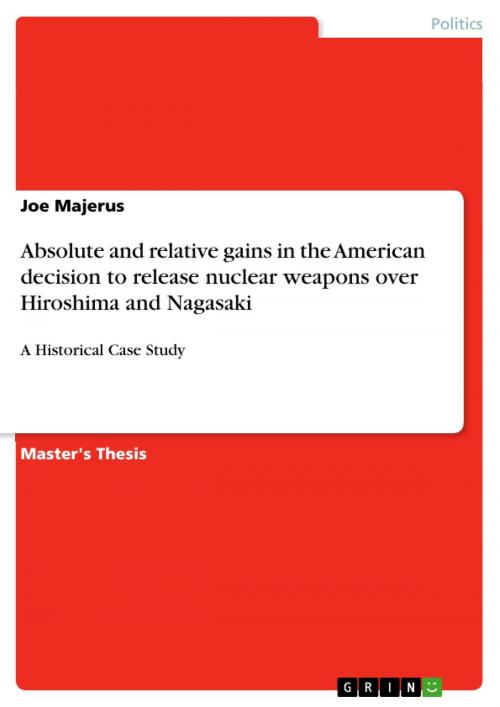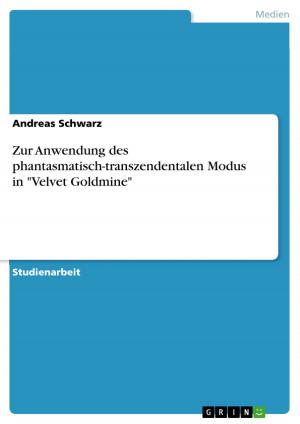Absolute and relative gains in the American decision to release nuclear weapons over Hiroshima and Nagasaki
A Historical Case Study
Nonfiction, Social & Cultural Studies, Political Science, International, International Relations| Author: | Joe Majerus | ISBN: | 9783656835967 |
| Publisher: | GRIN Verlag | Publication: | November 11, 2014 |
| Imprint: | GRIN Verlag | Language: | English |
| Author: | Joe Majerus |
| ISBN: | 9783656835967 |
| Publisher: | GRIN Verlag |
| Publication: | November 11, 2014 |
| Imprint: | GRIN Verlag |
| Language: | English |
Master's Thesis from the year 2014 in the subject Politics - International Politics - General and Theories, grade: 80/100, University of Leicester (Department of Politics and International Relations), course: International Relations, language: English, abstract: The question of whether states pursue absolute or relative gains in international politics has divided neo-realism and neo-liberalism for quite some time now. Thus whereas neo-realists contend that states seek comparative advantages relative to other actors, neo-liberal scholars argue that they are primarily interested in the accomplishment of absolute individual gains. In applying social-constructivist ideas, however, this paper will attempt to demonstrate that such a preference for relative or absolute gains is not naturally predetermined, but inextricably linked to the continual 're-construction' of states' national identities and interests. In other words, it is political actors' own conception and definition of international relations which ultimately determines their concern for absolute or relative gains. By analyzing the decision-making process of the Truman Administration for using nuclear weapons against the Japanese cities of Hiroshima and Nagasaki in August 1945, this case study will show that American leaders were altogether much more preoccupied with achieving absolute rather than relative gains. Such absolute considerations were simultaneously influenced by the pressures of an anarchic self-help system as well as by specific domestic imperatives and the personal views of individual policy-makers on how to best handle international problems and exigencies. More concretely, American decision-makers believed that only the realization of absolute gains such as swift socio-economic recovery and the creation of a more stable and peaceful security environment would ultimately ensure their country's long-term international position in both absolute and relative terms.
Master's Thesis from the year 2014 in the subject Politics - International Politics - General and Theories, grade: 80/100, University of Leicester (Department of Politics and International Relations), course: International Relations, language: English, abstract: The question of whether states pursue absolute or relative gains in international politics has divided neo-realism and neo-liberalism for quite some time now. Thus whereas neo-realists contend that states seek comparative advantages relative to other actors, neo-liberal scholars argue that they are primarily interested in the accomplishment of absolute individual gains. In applying social-constructivist ideas, however, this paper will attempt to demonstrate that such a preference for relative or absolute gains is not naturally predetermined, but inextricably linked to the continual 're-construction' of states' national identities and interests. In other words, it is political actors' own conception and definition of international relations which ultimately determines their concern for absolute or relative gains. By analyzing the decision-making process of the Truman Administration for using nuclear weapons against the Japanese cities of Hiroshima and Nagasaki in August 1945, this case study will show that American leaders were altogether much more preoccupied with achieving absolute rather than relative gains. Such absolute considerations were simultaneously influenced by the pressures of an anarchic self-help system as well as by specific domestic imperatives and the personal views of individual policy-makers on how to best handle international problems and exigencies. More concretely, American decision-makers believed that only the realization of absolute gains such as swift socio-economic recovery and the creation of a more stable and peaceful security environment would ultimately ensure their country's long-term international position in both absolute and relative terms.















